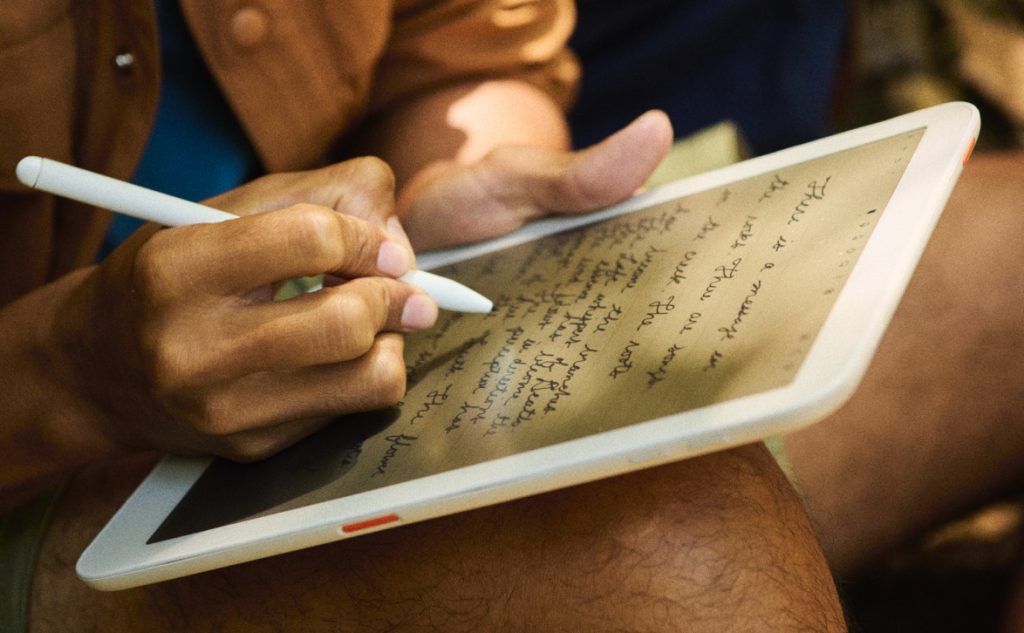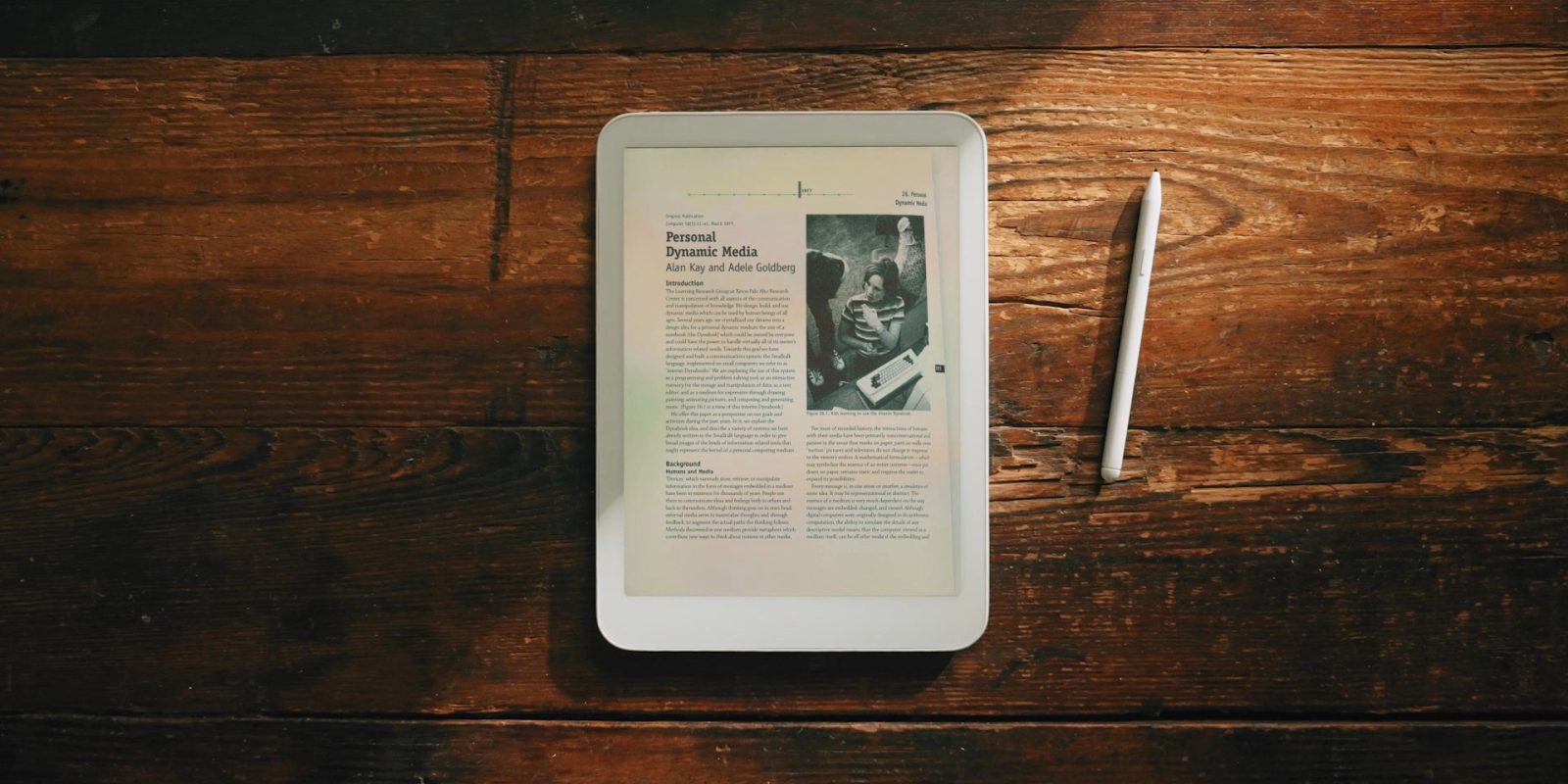
Daylight, a California-based startup, has released a new device called DC1. The DC1 is the world's first blue-light-free computer and is designed for deep thought and well-being. The device features a 10.5-inch LivePaper display that refreshes at up to 120Hz, combining the calm focus of e-Ink with the smooth responsiveness of a traditional LCD. This creates a paper-like reading and writing experience while offering compatibility with Android apps.
The DC1 is equipped to run productivity essentials without specifying them and encourages users to take their device outdoors as it is readable in sunlight. The tablet has notifications turned off by default, runs on a custom, minimalist Android-based operating system called Sol:OS based on Android 13, and uses a MediaTek Helio G99 processor with 8GB of RAM and 128GB of storage.
Daylight founder Anjan Katta aims to change the way humans interact with technology by creating devices that encourage reconnection with nature and thoughts. The DC1 is available for preorder at $729, with shipping expected to begin in June. Daylight also plans to release a laptop using the same screen technology in the future.
The LivePaper display produces no blue light and works well in bright sunlight, making it an attractive alternative to traditional e-ink displays that have limitations due to their refresh rates. The device runs on a pure amber backlight with no PWM flicker, ensuring a comfortable viewing experience for extended periods.
The DC1 is not the first Android tablet with an e-ink display, but it stands out due to its fast LivePaper screen technology and minimalist design that limits distractions. Some apps included on the device are Pocket Casts, Spotify, Audible, Notion, ChatGPT, Pocket, Kindle and Google Docs.
Daylight's goal is to create devices that encourage users to reconnect with the natural world and their own thoughts rather than being constantly overstimulated by screens. The company believes that this approach will lead to a more productive and fulfilling relationship with technology.




:format(webp)/cdn.vox-cdn.com/uploads/chorus_asset/file/25461690/Daylight_DC1.jpg)
/cdn.vox-cdn.com/uploads/chorus_asset/file/25462058/cart_image.jpeg)